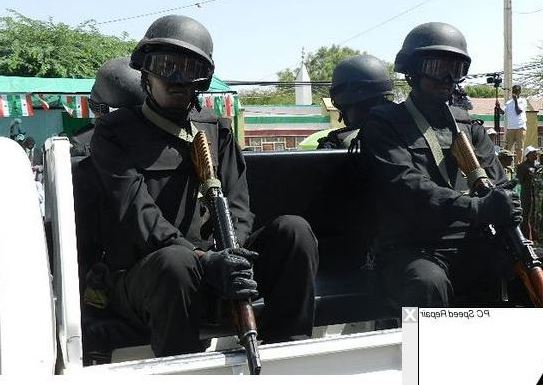On Saturday 1 December Somaliland MPs voted to amend some articles in the Police Act. Amendments will make Somaliland Police service more draconian, according to Guled Jama, Director of Human Rights Center in Hargeysa. In its new form the Police Act will empower Somaliland police divisions to operate without civilian court jurisdiction. What is more, the police will have no an independent body to which citizens can complain when police impropriety demands a thorough and an impartial investigation.
Somaliland Police has faced severe criticism about giving in to elder interventions in cases police had investigated and submitted to the national courts for trial. Guled has expressed dissatisfaction with amendments but fallen short of mentioning the hybrid political system of Somaliland that assigns unconstitutional powers to elders.
The Somaliland Police professionalism suffered reputational damage before MPs voted on amendments. Somaliland courts are dealing with a backlog of land dispute cases. At a recent conference on access to justice Sonsaf Chairman, Anwar Warsame, pointed to land disputes as major issue with which Somaliland judiciary is grappling. Somaliland has yet to develop an investigatory system whereby a police force of a different region can investigate another force to prevent a conflict of interest.
The Somaliland Police does not share data on cases settled out of court due to undue elder involvement. The principle to have an independent police oversight Guled has advocated is what citizens want to see in place; its applicability faces hurdles even if the government changes its mind on giving Somaliland police free rein in the absence of national emergency.
The danger that corruption will permeate the work of the police remains a burning issue now that MPs had given Somaliland Police carte blanche to deal with policing challenges. “The MPs [have] stayed long and become detached from the public,” tweeted Guled Jama. The amendment to the Police Act weakens due process which citizens look upon as a cardinal principle of Somaliland justice system.
While in London for a work-related visit the Somaliland Supreme Court Chief Justice, Adam Haji Ali, has reiterated commitment of the Court to the rule of law. The Chief Justice’s sentiment lays the emphasis on an acceptable judicial behaviour. The public and political class clip wings of Somaliland Police Force in different ways. In such a political situation securitisation approach to policing will gain currency. The uncalled for amendments to the Somaliland Police Act shows how the hybrid political system of Somaliland has outlived its usefulness. The Somaliland public and political class are sleepwalking into a police state.
Liban Ahmad




























